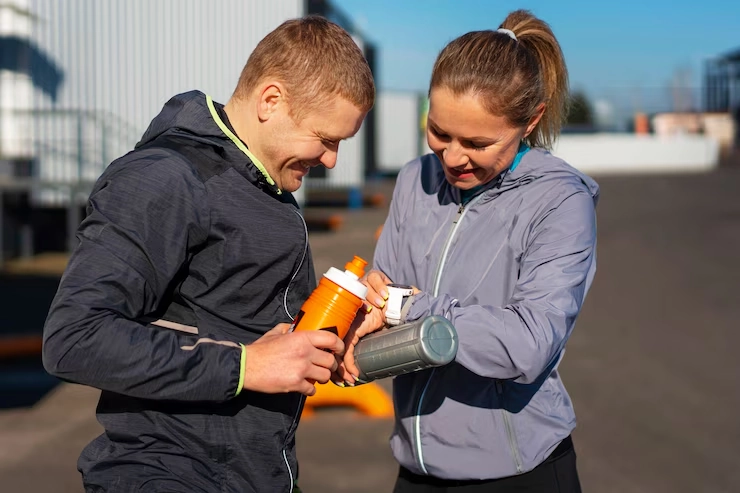Training for the Italy Run London 5K? You Don’t Need More Miles—You Need Precision Coaching That Gets You Across the Line Faster
The Italy Run London 5K may look short on paper. But any coach worth their stopwatch knows this is where runners often fall apart—tight pacing zones, variable terrain, and competitors who gas out after the first kilometer. At Pearl Lemon Running, we work with runners who aren’t interested in guesswork. They want structure. They want data. And they want to feel prepared, not just hopeful, when they step into Holland Park on race day.
We coach with one goal: improving your output, not just your effort.

Our Services

Most runners go out too hard and burn their glycogen stores before halfway. Others misjudge their cadence, pace creep kicks in, and they’re redlining before the 3K point. Then there’s those who’ve trained on flat roads, only to fall apart when Holland Park’s mixed terrain throws off their gait cycle.
These are not one-off issues. They’re patterns. We coach to prevent them.
Structured Training Plans Based on Performance Load
We don’t recycle 5K training PDFs. We build a periodized framework based on your recent performance history, fatigue threshold, and heart rate recovery lag. Each training block is built to raise your anaerobic threshold without overreaching your recovery curve.
Run Mechanics Assessment + Form Correction
We analyze ground contact time, cadence consistency, overstride inefficiency, and vertical oscillation through video breakdown and gait analysis tools. Most runners lose seconds every kilometer from poor movement economy. We help you fix it before race day.
Interval Systems That Build Threshold Without Burnout
We schedule interval sessions using RPE-based progressive loading, split-recovery targeting, and lactate clearance sets. You’ll handle intensity at race pace without blowing your CNS mid-week and dragging fatigue into long runs.
Course Simulation and Race-Day Strategy Mapping
We replicate Holland Park’s conditions in practice—cornering drills, negative split simulations, pace variation on uneven paths. You’ll train for what’s actually going to happen, not just textbook pacing curves.


Pre-Race Fuel Planning and Nutrient Timing
We help you manage glycogen load windows, pre-race meal macros, and fluid intake scheduling based on duration-to-finish expectations and sweat loss rate.
Heart Rate Zone Testing + Effort Pacing Conversion
We guide you through lactate zone mapping and translate it into practical pace splits. You’ll know your cruise zone, threshold zone, and where to hold back when adrenaline tempts you to surge early.
How This Solves the Problems You’re Actually Facing
Our approach is structured around what actually happens in this specific race environment—uneven gravel, tight cornering, congested early sections, and a pace shift in the final 1K that catches most people off guard.
Problem: Pace collapses after 3K.
We apply cadence stabilization drills and threshold block programming to condition your body to hold tempo without form breakdown. Our runners increase pace consistency by 12–18 seconds/km within five weeks of proper pacing work.
Problem: Can’t improve your finish time no matter how much you run.
The issue isn’t effort—it’s neuromuscular fatigue and poor anaerobic efficiency. Our protocols improve running economy by focusing on foot-strike mechanics and muscle recruitment patterns.


Problem: Training inconsistency due to busy schedule.
We apply micro-load planning. Runners with 3–4 weekly training windows still gain 8–10% pace improvement using intensity clustering and adaptive rest cycles.
Problem: Poor race-day energy control.
You’ll learn pacing response control and surge suppression tactics that help you regulate output using RPE and pulse tracking instead of racing by feel.
Problem: Struggling with race terrain.
We integrate foot turnover and grade-resistance drills specific to Holland Park’s conditions so you’re not fighting the course. You’ll know exactly when to push, when to hold, and when to recover mid-race.
Who We Coach
- Runners aiming for their first sub-30 or sub-25 5K
- Strength-focused athletes new to running efficiency
- Runners stuck at a plateau, unable to shave off time
- Amateur runners preparing for a top 10% finish
- Weekend racers looking to train with intent, not impulse

What You'll Get Inside Our Italy Run London Coaching System

- Weekly race-focused 5K training calendar
- Lactate threshold progress tracking
- Personalized video-based form analysis
- Course-specific cornering and pacing drills
- On-the-go nutrition plan guidance
- Race day execution briefing + strategy call
- 1:1 check-in every week to adjust load, recover, and recalibrate
Technical FAQs
We recommend 4–5 focused sessions. Our structure typically includes two quality workouts (interval/tempo), one aerobic base run, one technique-based session, and optional stride drills or recovery run.
Most runners show gains in pace efficiency by week 4. Average gains range between 9–14 seconds/km depending on training baseline and adherence.
We track pace variance, RPE consistency, ground contact symmetry, cadence range, vertical load oscillation, and VO2 max proxies via HR drift markers.
No. But we require commitment. If you’re willing to follow structure, we’ll take care of the programming.
That’s common. Most runners are winging it. We’ll start with progressive load adaptation to build your aerobic base and keep you injury-resistant.
Hit the button below and schedule your first call. We’ll run through your current training habits, identify the gaps, and show you what a focused 5K prep plan really looks like.
[CTA Button: Schedule Your 5K Coaching Session]
Why Our Approach Works
Because we aren’t just handing you a tempo run and telling you to taper. We show you how to convert fatigue management into pacing advantage. How to pull pace from foot strike mechanics, not just cardio strain. And how to race with discipline instead of gut feel.
That’s how our runners outperform their former selves—without adding more hours or grinding out more miles

